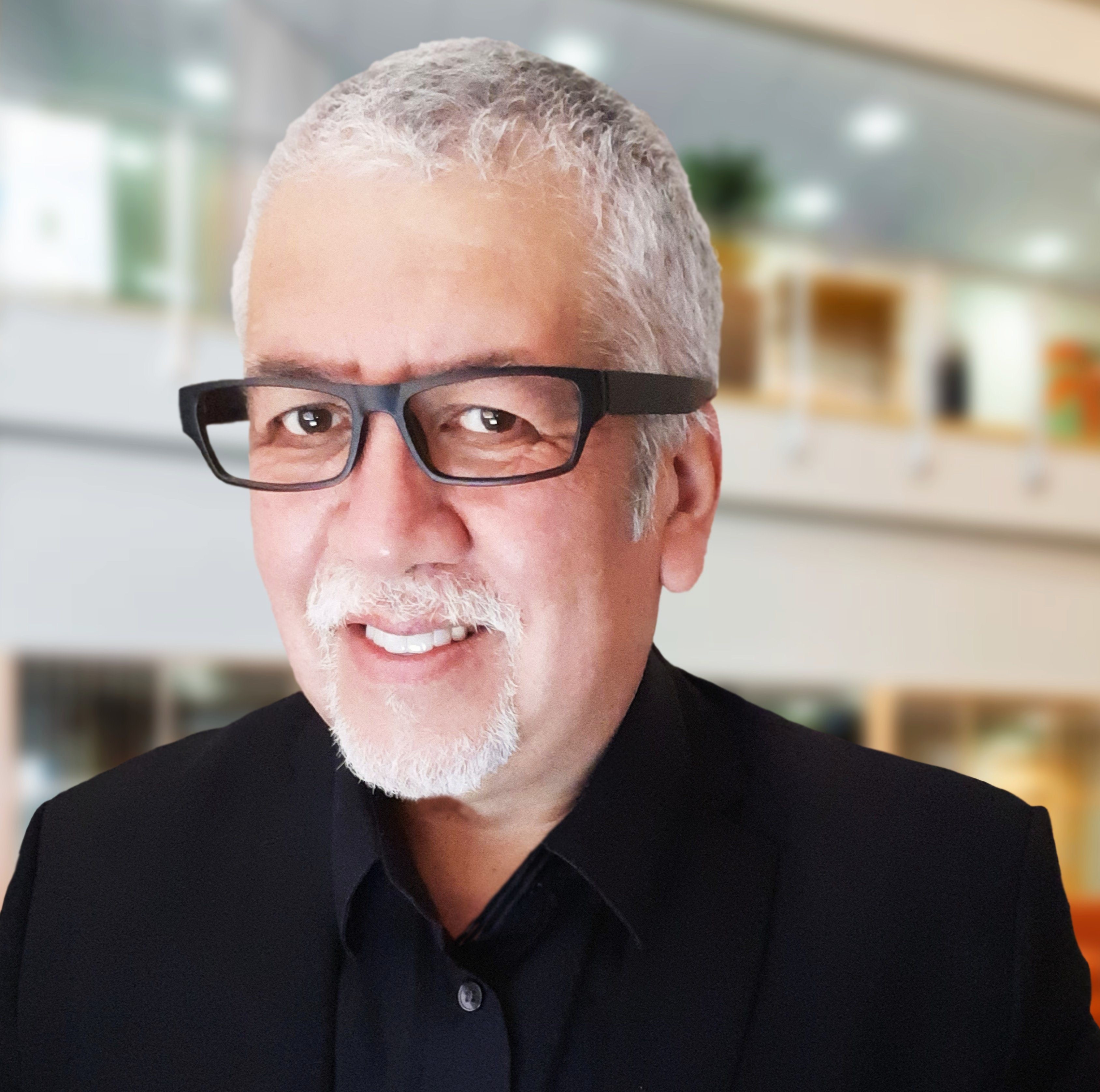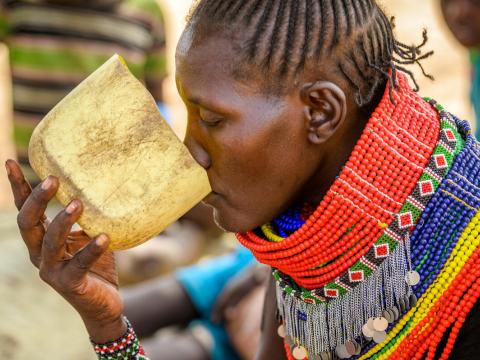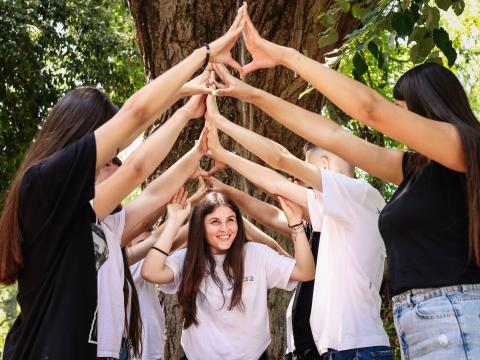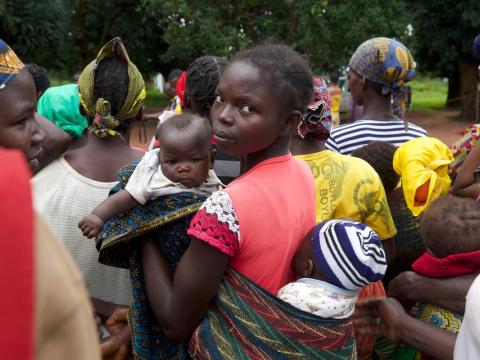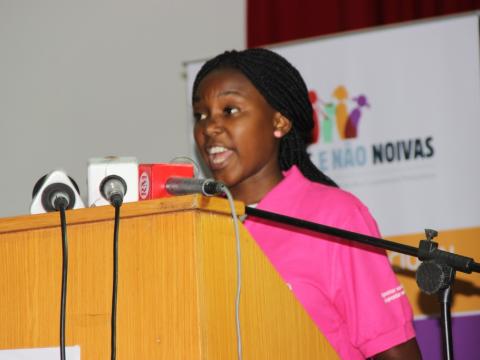
Celebrating girl activists, challenging inequity
Patricio reflects on three strong and determined girls who embody what the International Day of the Girl Child is about: girls realising all their rights.
Though we observe this year’s International Day of the Girl Child, in many parts of the world girls still struggle to realise their human rights. Girls face distinctive challenges worldwide and there is a need for better policies to bridge the gender gap, and an urgent need to reshape cultural norms and attitudes that prevent girls from participating fully in society.
Today is also a celebration of the progress that has been achieved in the fight for gender equality and the spaces for participation that girls have gained within society. Yet, the COVID-19 pandemic, climate change, and the global food crisis have eroded some critical spaces and opportunities for girls’ participation. In some countries, child marriage and child labour have increased, used by families as a survival strategy.
As part of my work, I have had many conversations with girls from all regions, from Peru to Ghana to Sri Lanka. Three common themes have emerged: 1. The girls’ desire to be treated equally, 2. Their wish to have the same opportunities as boys to thrive, and 3. Their commitment to working with other girls to make their voices stronger. Many of the girls I spoke with refused to give in to challenges to them realising their rights made worse by COVID, and the climate and global food crises. They clearly believed they have a leading part in speaking up for them and their peers, and stepping up when it comes to ensuring girls are treated fairly.
Self-organising girl power
For instance, following the Fridays for Future movement, a group of girls in Mongolia decided to be at the forefront of the fight against climate change in their schools. They prioritised two strategies: finding their own voices and spreading their messages for climate action. The girl activists told me that they were confident that their role was to be the voice of the voiceless and to shed light on the experiences of marginalised and disadvantaged groups which are massively affected by climate change in their country. The emancipatory focus of the girls’ work emphasises the importance of gaining a space to participate and make a change.
In another part of the globe, girls from Sierra Leone have organised themselves to prevent child marriages in their communities. They told me that their activism is moulded by their own everyday lives and experiences since they are part of the target communities and are thus at potential risk of being married off by their parents. Girls want to stop this harmful practice and so educate the community on the negative consequences of this tradition and the importance of keeping girls at school.
The girl activists told me that their actions were very challenging in the beginning as they contested the traditional understanding of girlhood in their communities. However, they found ways of being listened to and carried out joint efforts to change these bitterly unfair situations faced by girls. What’s more, their collective efforts provided them with the motivation to resist being confined to the domestic spheres and opened up spaces for their public activism.
When I was in Chile speaking at a children’s rights conference, I met two girl activists from the ‘Tremendas' group (meaning ‘Amazing Girls’ in English). This is a group funded by a female 15-year old entrepreneur who envisioned a collective movement of girls to influence change. I was impressed by the priorities they established through the implementation of their three initiatives: Amazing Girls for climate action, Amazing Girls for scientific transformation, and Amazing Girls for active citizenship. Clearly, they are not just looking for political spaces to promote an equality agenda but are also exploring dimensions in which females have been often discouraged to participate, such as science and technology. Their motto is that there is no democracy if girls are not included. And they are expanding and going strong.
These three examples show how girl activists position themselves as political and social actors who want to realise their human right to participate, make their views known, challenge power relations, and contest gender- and age-based exclusion. Together as a group, the girls empower themselves to construct their own narratives and discourses about their lives and the lives of other girls, before mobilising themselves to break down stereotypes and deconstruct prejudices. Impressively, they are rejecting inequalities through direct, planned actions and by creating a space for themselves in public debates that affect their lives.
Challenging prejudice
World Vision’s child participation work intentionally encourages our field officers to be mindful of the perceived gender roles that constrain girls’ chances to participate in community activities equally. Our staff members have been equipped with the tools and knowledge to develop creative solutions to barriers to participation and to contest traditional discriminatory attitudes and social norms. Furthermore, families and community members are sensitised to support the change of social norms and attitudes towards girls. This leads to more fair opportunities for all children regardless of their gender.
Our staff will continue to celebrate the efforts of girl activists around the globe and to support girls everywhere to initiate their own movements aimed at breaking boundaries and transforming societies. Our organisational vision is 'life in all its fulness for every child'. We know from experience that so many children have the will and motivation to strive for that, our job will continue to be to support them in any way we can.
By Patricio Cuevas-Parra, Director, Child Participation and Rights, World Vision International.
